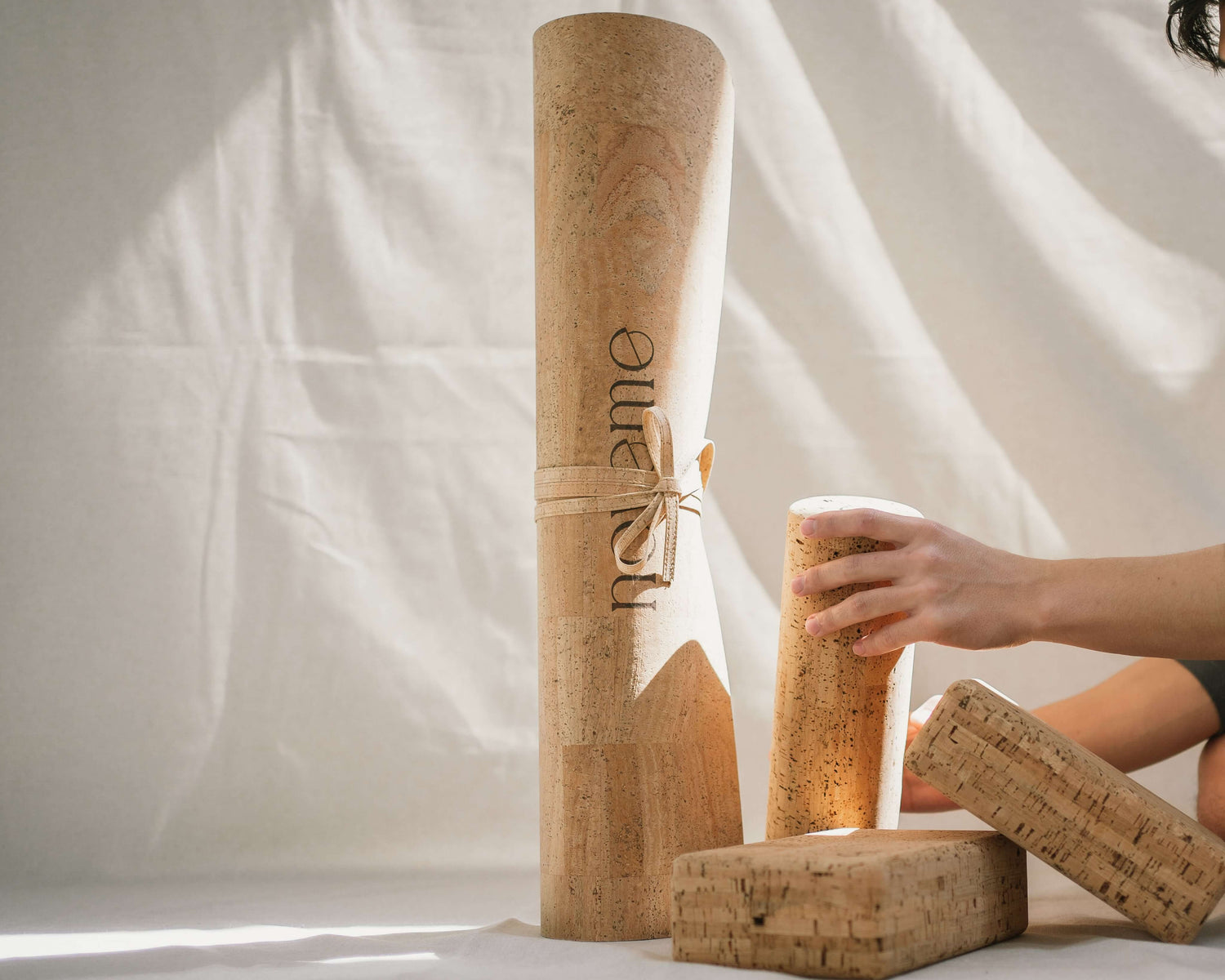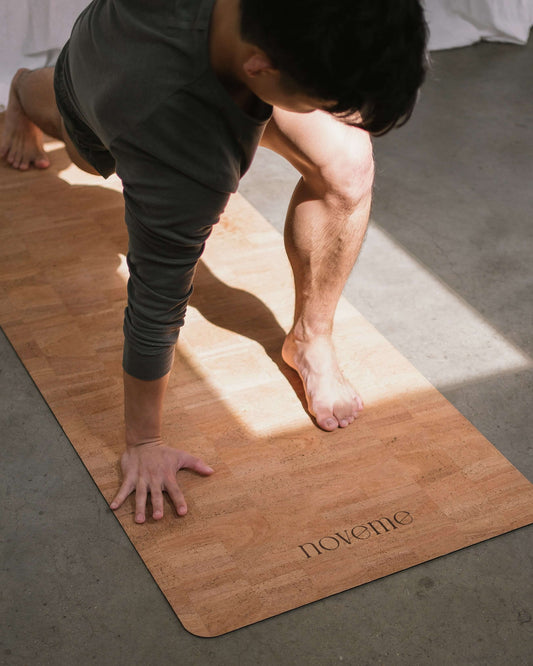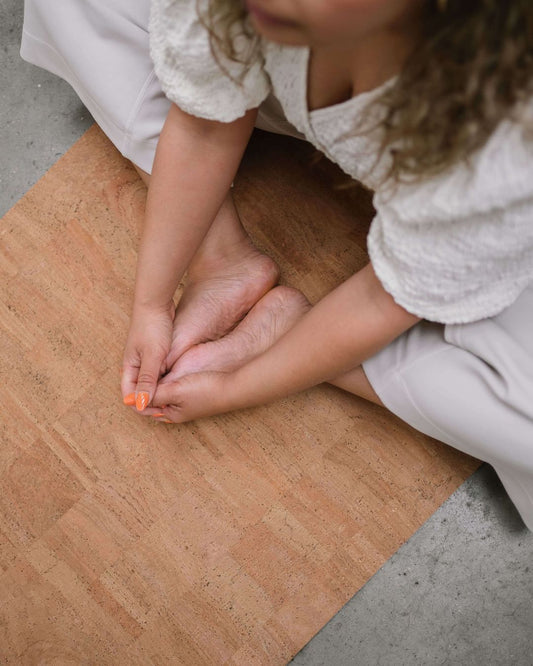Summer is finally here! And what a perfect time to implement some new, healthy daily habits you can keep all year long.
After all, research shows that it takes an average of 66 days to form a new habit or change an existing one. So, if you start during summer, you may find the will to keep on going.
Read on for our list of six healthy habits to begin this summer.

START YOUR DAY WITH A MORNING WORKOUT
Exercise has numerous benefits for your body and mind. The best part is that you don’t have to break a sweat for hours to enjoy these advantages. According to the NHS, around 20 minutes of moderate-intensity daily exercise is what you need to maintain a healthy lifestyle.
There are so many things happening in our day-to-day lives that it can be difficult to keep our workout routines consistent. Allocating some time for yourself when your day is just starting may help you keep a regular routine. Also, exercise helps to boost energy- and mood-enhancing endorphins, which will help you begin your day feeling energised and in a good mood.
Why not go for a walk, cycle to work or practise a mindful exercise, such as yoga or Pilates?
Summer may be the perfect time to start this healthy habit and, if you decide to exercise outdoors, you can enjoy the extra health benefits of exercising in nature.

SPEND TIME IN OR NEAR WATER
It is no secret that being near water is good for your body and mind.
Research shows that people living near blue spaces — such as the sea, rivers, canals, waterfalls or even fountains — tend to exercise more, show lower levels of stress and anxiety, and experience enhanced moods and psychological wellbeing.
Enjoy some time off at the beach, go for a walk by the river or simply enjoy reading a book by the lake.

EAT SUMMER FRUITS AND VEGETABLES
Eating in-season fruits and vegetables is a great way to reconnect with nature’s cycle and get the nutrients and minerals our bodies need during this time of year.
Fresh produce is essential for a healthy, balanced diet. In fact, it is recommended that you eat at least five portions every day — from a variety of fruits and vegetables — to help lower the risk of serious health problems, such as heart disease, stroke, and certain types of cancer.
Eating a variety of seasonal fruits and vegetables is not only a healthy habit but also good for both your wallet and the planet.
In-season foods are fresher and cheaper because you are buying them when they’re abundant. Plus, when you buy local, you’re contributing to a reduction in the energy consumption and CO2 emissions associated with the fruits’ growth and transport, while also supporting the local economy.
According to the Vegetarian Society, these are the UK summer fruits and vegetables:
JUNE
Asparagus, Aubergine, Beetroot, Blackcurrants, Broad Beans, Broccoli, Cauliflower, Cherries, Chicory, Chillies, Courgettes, Cucumber, Elderflowers, Gooseberries, Lettuce, Marrow, New Potatoes, Peas, Peppers, Radishes, Raspberries, Redcurrants, Rhubarb, Rocket, Runner Beans, Samphire, Sorrel, Spring Greens, Spring Onions, Strawberries, Summer Squash, Sweetheart Cabbage, Swiss Chard, Tayberries, Turnips, Watercress.
JULY
Aubergine, Beetroot, Blackberries, Blackcurrants, Blueberries, Broad Beans, Broccoli, Carrots, Cauliflower, Cherries, Chicory, Chillies, Courgettes, Cucumber, Gooseberries, Greengages, Fennel, French Beans, Garlic, Kohlrabi, Loganberries, New Potatoes, Onions, Peas, Potatoes, Radishes, Raspberries, Redcurrants, Rhubarb, Rocket, Runner Beans, Samphire, Sorrel, Spring Greens, Spring Onions, Strawberries, Summer Squash, Sweetheart Cabbage, Swiss Chard, Tomatoes, Turnips, Watercress.
AUGUST
Aubergine, Beetroot, Blackberries, Blackcurrants, Broad Beans, Broccoli, Carrots, Cauliflower, Cherries, Chicory, Chillies, Courgettes, Cucumber, Damsons, Fennel, French Beans, Garlic, Greengages, Kohlrabi, Leeks, Lettuce, Loganberries, Mangetout, Marrow, Mushrooms, Parsnips, Peas, Peppers, Potatoes, Plums, Pumpkin, Radishes, Raspberries, Redcurrants, Rhubarb, Rocket, Runner Beans, Samphire, Sorrel, Spring Greens, Spring Onions, Strawberries, Summer Squash, Sweetcorn, Sweetheart Cabbage, Swiss Chard, Tomatoes, Watercress, White Cabbage.
SEPTEMBER
Aubergine, Beetroot, Blackberries, Broccoli, Brussels Sprouts, Butternut Squash, Carrots, Cauliflower, Celery, Courgettes, Chicory, Chillies, Cucumber, Damsons, Garlic, Kale, Kohlrabi, Leeks, Lettuce, Mangetout, Marrow, Onions, Parsnips, Pears, Peas, Peppers, Plums, Potatoes, Pumpkin, Radishes, Raspberries, Red Cabbage, Rhubarb, Rocket, Runner Beans, Samphire, Sorrel, Spinach, Spring Greens, Spring Onions, Strawberries, Summer Squash, Sweetcorn, Sweetheart Cabbage, Swiss Chard, Tomatoes, Turnips, Watercress, Wild Mushrooms, White Cabbage.

GET STARTED WITH COLD SHOWERS
Yes, you read it right! As painful as it may sound, if you give cold showers a chance, you’ll be surprised how good you feel afterwards.
Moreover, what better time to begin this daily habit than in summer? You’ll start your day feeling energised and refreshed and may have the courage to continue this habit all year round.
Cold showers are said to boost your immune system, improve your hair and skin, lead to better blood circulation, and help you wake up and feel more alert, to name just a few.
There aren’t many downsides to having cold showers; however, they are not recommended if you are sick or cold. If you have any chronic health conditions, you should always consult your doctor before introducing cold showers.
If you don’t feel ready for a full-on cold shower, ease your way in with lukewarm water, gradually adjusting the temperature downwards to make each successive shower slightly cooler than the previous one.
Another way is to begin with a warm shower and finish with cold water, staying under for a few moments. On the first day, you may end your warm shower with a 10-second cold burst and increase the time gradually: second day, 15 seconds; third day, 20 seconds; and so on. While under the cold water, try to relax and focus on your breath.

PROTECT YOUR SKIN
Spending more time outside enjoying the sun is a great way to get your daily dose of vitamin D naturally. However, it also means more exposure to UVB rays – the ones responsible for skin damage that can lead to dull, dry skin; uneven skin tone; blemishes; wrinkles; and even skin cancer.
This is why it is super important to protect your skin with sunscreen that has a minimum SPF of 30, and to maintain this habit every day, year round, even when it’s cloudy.

DRINK WATER
Hydration is essential to our health and wellbeing.
According to the European Food Safety Authority (EFSA), the recommended daily water intake for adults is 2 to 2.5 litres (including water from beverages of all kinds, as well as that contained in food).
However, in our busy daily lives, it is too easy to forget to drink water. In summer, the hot temperatures and added activity may lead to dehydration and could result in symptoms like nausea, dizziness or tiredness.
Make sure you drink plenty of liquids during the day. If you don’t like the taste of water, try adding a slice of lemon or lime to your glass or switching to sparkling water.











